Socially Backwards and Fiscally Forwards: the False Divide and the “Conservative” Lie
Here’s how Bernie still won.
Two weeks on from the US election, and we are still mentally wrangling with the results. How did this happen? Which voter demographics went where? What did the Democrats do wrong?
Meanwhile here in New Zealand, we’re left wondering how this will apply to us and what this means for our own radical right wing parties who, Like Trump, also rose to power entirely on lies and a race divide they themselves worked to create.
Our elections are two tiny years away, and optimistic predictions from the left that this coalition may be the first ever one term MMP government are clashing with words of caution eerily echoing the 2024 US election outcome: just because one party is terrible doesn’t mean the populace will vote the other way.
(Of course, the UK on the other hand shows us that they will eventually… in about 15 years).
(How long did we give Muldoon?)
In the US, invested media are only adding to the confusion, set as they are on promoting a war of ideology between the two candidates that serves their own financial ends. They have the right refusing to bow to “wokeness”, or so they say; votes for Trump are a sure sign that people are putting their foot down to stomp out the left’s insistence that we continue marching along to progress’s steady pace. The left have finally pushed the ideological envelope too far, catering to identity politics above that of “the working class”.
To which I say: bullshit.
Firstly, let’s quickly poke a few holes into the narrative that the working classes aren’t at all interested in “social inequality” and that pandering to progressive social politics is somehow betraying them in favour of the politics of “educated liberals”. The working classes themselves are disproportionately PoC, are half female, and are just as likely to be queer as any other demographic. Shifting these issues into the sole realms of the “upper left” (wealthy and/or tertiary educated) creates a false division that the right prey on when they misleadingly present their politics as conservative, when really it is only their identity politics or social politics that seek a return to the old status quo.
The right’s economics, on the other hand, are forward thinking, modern, radical and progressive, certainly positioned against the left ethos which seeks a return to a socialist trajectory of equity and equality and the closing of class and wealth gaps like was globally seen in the post-war economic booms.
Right vs Left
What is true is that elections are mostly won on economics.
It is also true that the vast majority of the voting populace do not understand economics.
Even more so, it’s true that they mostly don’t pay attention to politics or current events beyond those things that directly impact them and which are placed right in front of them.
This creates massive, massive blocks of voters who vote based on vibes — who, before checking the piece of paper that decides the future of government for the next four years, judge whether they feel the country is doing well and whether or not they think that it’s the current guy’s fault. Those people vote in line with those feelings informed by their own limited perspectives and information mostly gathered from the people around them, and as a result, these voters do not always have a deep understanding of the political causes of their plight.
This hasn’t changed with the invention of social media: social media has just provided a new political tool with a lead-blanket effect that conveniently makes money by manipulating the people and data below the surface while masking the effects of political events and conversation on all online voting demographics.
Which is now all demographics, because everyone is online.
Almost.
We still have the same left and right, young and old, progressive and conservative, invested and not invested, radical and centrist dipoles all pulling at people’s priorities in the same way they did before facebook and youtube algorithms started radicalising people. We’re all just a bit angrier about it.
And the politicians still aren’t supplying us with solutions.
How Trump Won
My evidence that I base much of this on is very tenuous: I have in my life been friends with one actual supporter of Trump.
We no longer talk anymore. He was a New Zealander who owned a Trump hat, which he mistakenly left in my field of vision the day Trump won in 2016 and I tore into small pieces.
That’s not why we don’t talk. I eventually got tired of being beaten over the head with his unchanging politics during Trump’s first term.
But before he turned strongly pro-Trump, he was a Bernie supporter.
I have no knowledge of what his political views are now but I can’t imagine they’ve changed. He didn’t support Trump because he was especially racist or sexist, although he had viewpoints I’d label as such that I’m sure made him a prime target for those movements, especially if a deep division in politics caused people to push him away (or in my case, block him on Facebook).
But I expect his views haven’t shifted away from the right at all.
Why would they?
What have the Democrats done differently in the past decade except to fail to hold effective elections to select their nominees? The party establishment put so much support behind Clinton that it warped the field from the outset. It was never a fair race, and when the race was pared down to a two-horse deal between Bernie Sanders and Hillary Clinton, the money and support of party elite pushed Clinton ahead of Sanders at the expense of radical swing voters and the wider populace, who saw and understood this and turned against Clinton and the Democrats because of it. This is what Trump played off of with his vague but damning references to “her emails”. And a vocal part of his voter base ever since has been, I suspect, those same uninformed (or overly-informed) blocks of supporters that Trump initially pulled from the Dems after they failed to elect Bernie in an even race, and they’ve held onto most of them ever since.
[I’ve figured Trump out, by the way. He’s a walking, talking Large Language Module (LLM). He’s AI made human. He’s a team of reddit bots primed to spit out stories and say ridiculous things to television cameras and large crowds, and then his lifelong narcissistic focus makes it easy for him to work out which topics the crowd liked, and then he just rambles on about those for a bit more in his insane way that doesn’t matter because no one is listening closely enough to care, and the right build a campaign around it. He is populism personified, and that’s how Trump built his platform. Democratically.]
How the Dems lost
The Democrats certainly lost this election for reasons that are their own responsibility, but that doesn’t necessarily mean they lost it this election during this election.
The unfortunate reality is that the Democratic Party processes have warped it away from being a party of the people. It has become a party of established powers that far too many people have now had just cause to turn away from.
Voters feel that the economy has worsened, that conditions have worsened, and they see the Democrats were in control for most of that and don’t understand, mostly, that the party is fighting in agonisingly slow trench-warfare against Republican corruption, incompetence, and bad policies that are causing the very problems they’re complaining about, like immigration or “the war on drugs”. And Dems are not still offering any different plans to change any of that than they were 20 years ago. People see that. People understand that.
And they’re not wrong for voting accordingly.
Democrats have candidates who would actually be popular with “working people”, with the voting populace, with potential left voters who will otherwise swing or stay home come election day. Sanders, Warren, AOC (who turned 35 this election). But these are unpalatable to the core of the party because they are too radical, and it would upset the neoliberal interests funding their campaigns, and also just because the party is determined to close around and select those of their own in order to hold onto personal power.
So their primaries instead become about how the core of the party can unite around an old ally in order to keep these sorts of popular nominees out.
The Democrats selected an ex-first lady and two former VPs who all had face recognition with the public, and then they played off this in massively establishment-funded primary campaigns where they tried to push voters towards their preferred selection. This worked in their candidates’ favour in the primaries but alienated the very people least likely to fall in behind the party and vote blue along party lines in the real election.
Like, c’mon, your name is the Democratic Party. You actively campaigned in 2024 on upholding democracy. You can’t rig your own selection process for over a decade and then expect people to not notice you’re all massive hypocrites.
This effect has been nebulously phrased by many as “abandoning the working class”. Which, while true, is not a very helpful description. They haven’t abandoned the working class, they’ve abandoned the entire voting populace. But the right especially love this framing because it makes you say “Abandoned for whom?” And while the switched-on thinking parts of the economic left will fill that gap in with “Monetary interests”, the social right will fill it in with “Minority groups they’re catering to” and get all confused and bigoted, which is the right’s entire game plan at this point.
Globally.
Let’s get this clear: there is no ideological left vs economic left. There isn’t a diehard group of leftists out there saying “We need trans rights and Israel out of Ghaza, but actually we’d like you to keep around the hegemonic powers that are crushing the lower classes into poverty”.
The “ideological left” are the staunchest believers there are in overturning neoliberalism, undoing its social and ecological damage, shifting to a more even-handed economic ideology and locating a set of brakes for this runaway capitalist train that’s still filling our atmosphere with choking, heat-trapping smog.
The “identity politics heyday” leftist voters were supposedly handed instead of socialist reform was not a generous purchase of their vote via catering to their marginalised identities, it was a consolation prize to make up for the radical economic upheaval they were promised by Bernie. Unable to make meaningful economic change, Dems promised the usual neoliberal tinkering while pushing for much-needed social equality in America’s legally-backwards and divided state system, and were granted a huge boon by Republicans for the cause given they at this time started openly stacking the judiciary with activist judges, making the taking of the legislature seem even more pivotal to the Democratic base in the elections. It was the only thing the left could do to soothe many of their core voters, along with their system-tweaking that placated enough people for them to win it back in 2020.
The Democrats placed themselves on this fixed track in the post-Obama political climate. Once they’d committed to establishment candidates, to Hillary over Bernie (and it was always going to be Hillary in 2016, even before Bernie’s popularity skyrocketed), they weren’t very well going to do a u-turn and say, “Actually, we’d like the radicals back in here now.”
The push to get a new face for the party was in 2016 and it came from outside the party — after that, the American people had tuned out. Bernie didn’t have the centrist momentum when campaigning for the 2020 nomination, having been crushed by his own party in the previous race, and they didn’t even have a race in 2024. Speculation flies about why that is, whether it was Biden’s arrogance or the establishment’s stubbornness. Probably both! But Democrats used it to paper over the fact that they’ve made their candidacy selection so uneven that the people’s clear favourites, those few who start the race with the real momentum to overtake the incumbent and win the nomination, can never be allowed to make it out of the primaries. Because they champion the people’s interests at the expense of the established in the party.
That the funds for Kamala’s campaign was secured while Biden was still running for 2024 is exactly the problem. Oh, on the face of it, the reasons this happened are “Old man too stubborn to quit” or “Democrats too scared to run anyone but Biden against Trump”. But at the end of the day it doesn’t matter why, it matters what it does, and this chain of events ensured that moneyed interests saw a successful handover of the party to a public figure who would still hold the donor’s pecuniary contributions in mind when planning their policies.
Again.
And it meant the public were denied a fair race.
Again.
And that’s too much to motivate a demotivated blue-collar populace to vote blue for the third time in a row, even against an increasing democratic threat that never goes away while nothing gets any better.
The red wave that was started by the Dems well before the 2016 election was lost has finally crested.
What about Labour?
I don’t know. What’s their name again?
NZ Labour can be accused of the same (ideological/economic AND nominative) confusion that the US Dems are showcasing.
Whereas the American right introduced neoliberalism in the 80s under Ronald Reagan, neoliberalism in New Zealand was introduced by the left, just before our system was split apart into the MMP-cemented structure we see today. The man who introduced it went on to father the far-right ACT party, in order to champion his free market philosophy in the face of pushback from the rest of the Labour party due to his duplicity in instituting his betrayal of an economic system.
When ACT was formed 30 years ago from both Labour and National MPs, they were purportedly a centrist party, and until this very term, they have been largely considered center-right by many, hiding behind the philosophy of libertarianism and the limited social freedoms it allowed them to push in order to promote themselves as “bipartisan”. Because of these supposed ‘socially left’ presentations, including the success they had with euthanasia, Labour have not properly grappled with the growing realisation that neoliberalism is opposed to their aims, just as the public have not grappled with the growing realisation that ACT (and National) are far, far from center right.
But they are, and it is. Just like Douglas shrouded the extent of his right wing economic ideology from the Labour party, for the last three decades the ACT Party have hidden their far-right economic and social intentions for New Zealand behind a more moderate facade, playing on semantic confusion around the terms ‘liberal’ and ‘libertarian’ as demonstrations they have left intentions — despite displaying a decidedly right-wing philosophy overall. Add into that the youthful idea of ‘owning the libs’ and this vernacular has become well and truly confused for new political generations in New Zealand and America alike.
Like ACT, libertarianism has been masquerading as a “third philosophy”, to be positioned somewhere around the center of the spectrum with the unicorn-like “blue-green voters” and “leftist zionists”. These groups exist, but aren’t usually as aberrant or influential as they purport for the reasons they portray. Under this nontraditional-seeming ideology, ACT has worked with National (locked together as they are in a to-the-death alliance over the Epsom seat) in order to create the tense social conditions needed for their shared extreme right-wing economic philosophies to thrive, while National have supported ACT and pushed their own moderate populist neoliberalism, with only gentle guidance from neoliberal interests needed (i.e. the occasional wining and dining of the sort that got Jaime Lee Ross into trouble).
On one hand, you have once-centrist right wing parties pushing race politics in what even ex-National PMs are describing as “inviting civil war” while on the other hand you have left wing parties trying to follow normal science and our agreed-to bipartisan international climate plan that isn’t even fast enough to beat climate change, and Labour are being politically punished for this.
The right have pointed so many fingers over the ideological “divide in politics” that is quite clearly coming from the right themselves that even the left themselves are almost buying that they helped create it. The clearest example of this yet was when an ex-Trump supporter shot Trump, and the right used the opportunity to blame the left and then talk about how we all needed to “use less less divisive rhetoric”.
But you can also see it, right now, and in the months leading up to the election, in how the right and left wing ‘moderates’ write and talk about how the gender divide is women’s fault. Like women, the left are just existing in this modern day society, following modern 21st century social norms, due procedure, judicial, constitutional and criminal law and confirmed science, while the right present all that and refusing to date men as each group “pushing an ideological war”.
The Left-Right Illusion
You can’t be really be socially left while you knowingly hold positions that support the economic forces that drive the country to the right. Not if you’ve followed science and statistics through to their conclusions. Just like you can’t be left on global political issues while also advocating for the genocide and apartheid regimes of a colonising state.
And when I say “you cant be socially left”, you can be, technically, and groups and people holding these beliefs do exist outside of leftism. But if you try and participate in conversation as if your worldview is actually entirely leftist when you’re really occupying two different ends of a spectrum at once on this one particular issue, you’re going to clash with and frustrate a lot of the ‘leftists’ you’re talking to.
And that is how you get Reddit.
Those who will vote left (or right) while not agreeing with the full “leftist ethos” are usually “demographics voters” and swing voters — they are who the media love to talk about. They are affected by real local issues. They notice real situations and feel the effects of real and concentrated change.
Economic policy that has not been producing an upwards economic trajectory has disillusioned many of these voters too. People care about what’s in their pockets; they can even be convinced to vote against their own best interests if they think the other party might actually bring beneficial change to them overall.
Democratic and Labour policy has had to work overtime to capture these voters because of disillusion from all groups with the growing stranglehold of neoliberalism over a period of routine economic shifts. This gives the appearance of them trying to win votes with “identity politics”, when this has actually been a combination of “nowhere else to turn” politics, appeal-wise, and a growing reflection of the leftist belief across policy that “representation matters”. This ‘ideology’ that people invested in an issue and community are the best placed to help solve that issue, that indigenous inclusion or disability philosophies such as “nothing about us without us” are genuinely important ingredients for facilitating a conversation that creates real solutions where people’s needs are met, humanely and with dignity. That people’s perspectives matter and their problems won’t just go away if we don’t address them.
I like to call this the “cause and effect” philosophy that we see dominate leftist politics so dramatically these days. Make good decisions, get good outcomes. Follow science, beat COVID. Consult stakeholders, keep all parties invested. Keep emitting at current rates, planet dies.
It’s all very straightforward.
Social vs Economic Politics
I’ve formed the conclusion that any explanation of modern politics that presents demographics as having radically shifted over the past few decades is greatly exaggerating effects that we aren’t even certain we can see.
The “deeply contentious” US elections are producing margins of a few percentages which are shifting back and forwards each election, but the narrative that this is indicative of anything meaningful is mostly formed by a highly commercialised and privately-funded US news media flailing to retain control of its viewership as the new gatekeepers of sensationalised information (i.e. the internet) roll into town. Meanwhile, that new network of influence, the small collection of corporate giants who own social media companies, have grown in the past decade or so to capture 94% of the world through internet usage and 70% of the US via just social media usage.
We don’t know exactly how much of what we are “shown” as the internet is real. Best estimates hold that about half of the internet is bots, and about a third of it is “bad bots” — malicious activity or fake accounts. This has been the case since back whenever we started measuring this. But there are frequent a believable suggestions that this is a massive underestimation, as well as predictions that the amount of ‘bot activity’ is growing, dating back two decades.
We can estimate some bot activity through internet metrics. After the US election, overall internet activity dropped significantly, a figure which has been attributed to Russia and China and that we have no evidence is not activity coming from within the US by private market bots and/or from bots being run by the tech giants themselves. We also have to remember that this isn’t every bot leaving the internet — much activity is endemic, including political persuasion, and in fact the most valuable ‘real seeming’ accounts and profiles are almost certainly managed by humans and/or AI modules running full time to keep up consistent activity.
The narrative isn’t just being shaped at elections, it is being constantly tweaked and impacted by machines that do not have to think, just repeat language in the sort of way it’s been instructed to. This means the narrative isn’t best influenced only during the run up to elections, it’s being trimmed consistently over time like a stunted democratic bonsai.
If you haven’t put much thought into how AI is being used right now, commercially, behind the scenes, give it a minute. Ponder it. Read this sales page. Be very frightened about the gaps where you don’t entirely understand.
More frightened than that.
Then remember that AI is just batches of programmes run over and over again, selected for whatever the programmer has defined for it as ‘success’. And that from the moment it was officially “deployed” in 2022, it could have conversations nearly as well as a human could.
And then try to comprehend how much of the internet it had to have already inputted into itself over and over again, over years and years and years, to make a sort of broad applicability language module like ChatGPT.
Are the right using widespread internet interference to win elections? Elon would suggest yes.
Given we’ve never seen the spikes of activity that would demonstrate AI is being deployed, including in the months and years following when AI was supposedly deployed, I would have to assume that it’s been here growing with us the whole time and we’ve just been largely unable to tell.
This actually makes sense when you think about how AI tools are developed, as AI needs to ‘learn’ via executing text repetitively on the internet, and so a learned language module ready to be deployed for the US election would have to have been in development 15 years before, if only to learn how to ‘write’ the way people online do (I have a theory that jumbled spam in early social media inboxes played a role in teaching LLMs to speak).
But we know now they were using ‘bots’ to do far more than that. Evidence of the New Zealand right using ‘bots’ in social media campaigning during the early 2010s was brought to light by Nicky Hager, and corroborates this theory that political AI may have grown alongside and in turn also helped form politics in online spaces. Because of that, I suspect that this LLM technology has been ‘available’ via backdoor markets for as long as it’s been in development, if only to help it develop because it needs to be developed for the market it’s supposed to fill.
If the slow rollout of AI has shown us anything, it’s that consumers are not the focus markets of AI. There has not been a rush to sell us useful technologies that can improve our lives or turn advanced but popular professional tools like video editors or photoshop into something anyone can use. There has been a rush to give the appearance of product development, while actually honing in on the best way to get users to submit their data under the guise of you making your dead grandparent come back to life and hug you from a photo. And the supposed ‘AI’ tools our tools themselves are ‘just now’ developing were clearly already in development and have been informing the professional digital services they offer for some time.
AI models are proprietary and they use up huge amounts of power — we’re not exactly sure how much, because crypto mining is conveniently masking evidence of this (and alway has been) as both technologies are hugely power-intensive. But anything being run commercially is being run for purpose and for profit, and the ways AI is being generated and sold to us isn’t though new products, it’s either via the same products that started setting up subscription payment models for their services years ago, or via products who are selling us as products.
Social Media, Search Engines, and the Gateway to Information
Right now, there is more information available for us than ever, and the only problem we have in “knowing things” is knowing how to access them. How to find and filter information. How to make sense of it. What to believe.
This is the same problem we’ve always had, but the barriers are a little different these days.
Where once the Church kept tight control over sources of knowledge in the face of the modern printing press, now this role is being seemingly torn from billionaire-owned news institutions as we transition into a new technological era, while humanity’s next greatest development, the internet, has produced a new keeper of all information: Google.
(Which has only gotten worse as a search engine since 2008, by the way.)
Meanwhile the modern equivalent of the bible, wikipedia, is being upkept by a democratic assortment of knowledge keepers as the AI part of your search engine tries and fails to convince you that it can scan the internet to find information for you much better than you can, and also you should allow its AI-driven feed to deliver its sources of news directly to your eyeballs each morning and not read anything else.
If the printing press was the founding of all modern knowledge and social media is the wild west of the internet, I’m pretty sure Samuel Colt just invented the gun.
The same people who voted Bush out are the same people who voted Trump in.
They also voted Bush in, of course. And Obama, largely. Politics hasn’t changed that much and people are fickle, and not just because of the internet.
“The Right” and “Conservatives” meant the same thing once upon a time. Conservatives were called such in terms because they are regressive compared to the progressive left, both economically and socially. Today, these terms mean roughly the same thing in a social ideology sense, but this isn’t true economically, and hasn’t been for some time. Economically, they’re progressive radicals.
The left’s socialist principles of collectivism and class equity underpinning western economics up until the 70s are actually the regressive, conservative economic ideology at play, and have battled with adherence to a right wing economic system ever since neoliberalism was introduced. Individual leftwing parties across the globe now fight their own demons (interparty and intraparty politics mixed with seeded monetary influence) while balancing the dual mandate of promoting new economic policies based in evidence and people-centric ideology with the boosting of a national consumptive capitalist economy in competition with every other economy on the planet.
Oh, and they also had to appeal to voters at the same time.
You can see why sometimes they might miss.
This economic conflict the left found themselves in has been promoted by a number of interests, especially in the traditional media, silicon valley, via ATLAS, and from many billionaires sinking money into ‘the US left’ while their peers do the same on the right.
The US, fully indoctrinated against all forms of collectivism and ideologically locked into the free market by the mere use of the word ‘free’, have taken the capitalist cause up readily as the world’s biggest economy, to the point that an attack on neoliberalism, worded in the wrong way, can often be construed as an attack on America or even on democracy itself.
This was why the Bernie Sanders phenomenon was especially radical; in a country where socialism is a bad word, it takes a lot to make your average American agree to anything that even smells like The Red Menace.
Here in New Zealand, every party including Winston Peters has had a vested interest in continuing neoliberalism. Without the presentation of a serious economic alternative, something that can only really be proposed by Labour (or the Greens backed by Labour, or maybe the Greens eventually, in a decade or so when Labour has leeched off many disenfranchised radical voters there is barely anything left of them), we can only trundle along in this existing system.
New Zealand’s best shot at overturning the neoliberal establishment was in 2020, for strange reasons. Part of it was because of the strength of our news media and information networks was temporarily boosted by COVID at the time, and part of it was because it was the election Labour won without their more left wing minority partner, the Greens, in power beside them. Even though the Greens are more radical, having to deal with coalition agreements limits labour, and while holding the closest thing to a mandate for change since Muldoon handed to them, Labour under Jacinda Adern or even under Hipkins could have driven the sort of transformation the country needs to see.
But Labour weren’t ready.
Our shift to neoliberalism was forced through by the economic crises of the 70s and 80s and the particular position New Zealand was in at the time, fed to us by the global powers of the Atlas Network; since then, we have only ever had minority governments. While a three way coalition between Labour, Greens and New Zealand First could, if motivated to, easily change our economic direction in response to an economic crisis (and all of those parties in theory would be motivated to abolish neoliberalism given the opportunity), Labour sweetly steered us through those rough economic rapids in their COVID response. The resulting “do whatever you want” mandate they received did not then have enough political drive behind it to push them to break our economy away from the status quo and potentially upset moderate voters — they’d just won their best ever election by doing exactly what they usually do.
Why change it?
Because neoliberalism is inconsistent with the modern left ethos.
The serious bar to economic and social change in New Zealand is the Labour party itself — like every other populist left wing party worldwide, it has spent its time collecting donations and winning popular support of the middle classes through an economy built on unsustainable economic growth and resource extraction — balanced with some constitutional line-toeing and a light sprinkling of climate initiatives and sensible socialism to continually pull us back from the social, environmental and economic brink that the opposition keeps driving us all towards.
Buoyed by a housing market ponzy scheme, this has been an easy and popular method of placating the populace until the tide shifts and they ‘inexplicably’ lose in regular more-rapidly-repeating cycles.
But the inaction has come back to bite Labour now that the poor are poorer, the labour force is strained, the young can’t buy homes, and our country’s cash money has shrunk in real terms exponentially for the vast majority of the populace resulting in a squeezed middle and downwards pressure that post-COVID inflation has made unfortunately attributable to Labour. But the average voter — in fact, the expert voter, sometimes — is not always so well informed and doesn’t necessarily know what’s happening, or why, or who to believe about which side to blame for all of it — and the major parties on either side aren’t ever talking about whose fault it really is because of them caused it back in the 80s and the other one is made up of wealthy people profiting directly off it right now.
But at the end of the day, the idea that there is a social left and an economic left is either a mistake or a deliberate lie. There is an economic left that is intrinsically linked to an economic philosophy that has not existed as a system for over 40 years, not since neoliberalism was introduced, and now our current left wing political parties are not motivated enough or powerful enough to openly drive that economic system towards change. And this economic left is inherent to the social and class philosophies of the left as a whole.
Beneath that are the voter demographics that parties have to cater to, and these are the populations and groups that can be appealed to with specific policies in which left-based economic theory can be put into play. For example, many voter demographics will support leftist ideas like increased social supports instead of prisons, but if crime is increasing in their neighbourhood and the other party are offering more police, they’ll vote for an immediate solution and will move back to tick the box for the other party, or a different party, or no party. It‘s human nature.
Where much of the confusion is coming from is that we (the “political we”) now have an actively worse grasp on what those demographics are and why they are voting for who than we did thirty years ago. Because of the internet.
The need to unite
There is a great need to unite, though perhaps not in the way most people are taking about. Yes there is a need to unite as a people, as an ideology, as one anti-racist but more so, but I don’t so much have the words for that. If you would like inspiring words around standing against racism and neoliberalism and National Unity, I recommend you go read this substack by Mountain Tui as we need that sort of unity and optimism too.
But my plea for us to unite is much more practical.
We, the left, Labour, New Zealand, politics, pro-democracy politicians, even Winnie and the cookers (if we can still fit him into a coalition agreement), need to unite behind a coherent political, forward-thinking ideology married to a workable economic structure that moves us away from neoliberalism while still meeting the needs of the New Zealand populace.
For those of us on the left, this means we need politicians who can work together to take the social movement seen in the pushback against the right’s policies, from the anti-Maori to the anti-poor to the anti-disabled to the anti-environment to the anti-health, and turn this into economic and systematic change that works across party lines.
We need a coherent legislative agenda of the sort that MMP makes very difficult.
It is the job of the politicians to marry movements to … political moves in order to produce legislative change. We therefore we need a unity of purpose from a group, or our groups forming behind a person, within the establishment who can bring change, ideally a group positioned to govern parliament themselves, that can promises New Zealand a different system — a better system, a better way of doing things beyond the system, a better way of forming those systems — along with a new economic model that lets us fund hospitals and disability care without having the next government come in and cut back on costs. The sort of economically-funded system that Labour and Greens have been driving towards piecemeal without the underlying change in funding structure.
Labour must let go of their fear of upsetting the comfortable middle with a change not motivated by an immediate economic collapse. And they must do it while still finding the ways they can appeal to all of the demographics who usually vote for them. Whoever leads them, or leads this movement, has to be decisive enough to make the hard call to institute sweeping reforms before things become terrible. If this is still before terrible.
And they have to do it now, while the decision is still hard, or they will continue to unintentionally unite with National in economic disharmony that drives us towards the sort of economic calamity they saved us from in the 80s, under the Atlas-guided hand of Roger Douglass. Because economists and environmentalist and scientists and activists and health workers and historians and all sorts of very knowledgeable and sensible people now are saying “This trajectory is unsustainable”. And both our politicians and our populace don’t seem to be hearing them clearly enough.
Labour, the left, need to act decisively — now, while it’s hardest, and before it’s done the most damage.
Because l the US election doesn’t make me worry National (or ACT) will win again in the 2026 elections.
It makes me worry Labour will continue to lose.
And under MMP, Labour can mostly only ever lose.




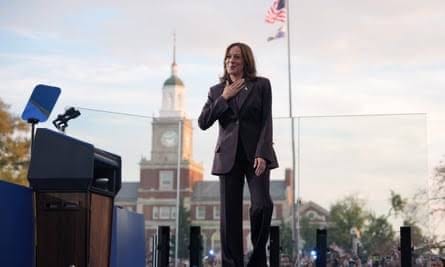

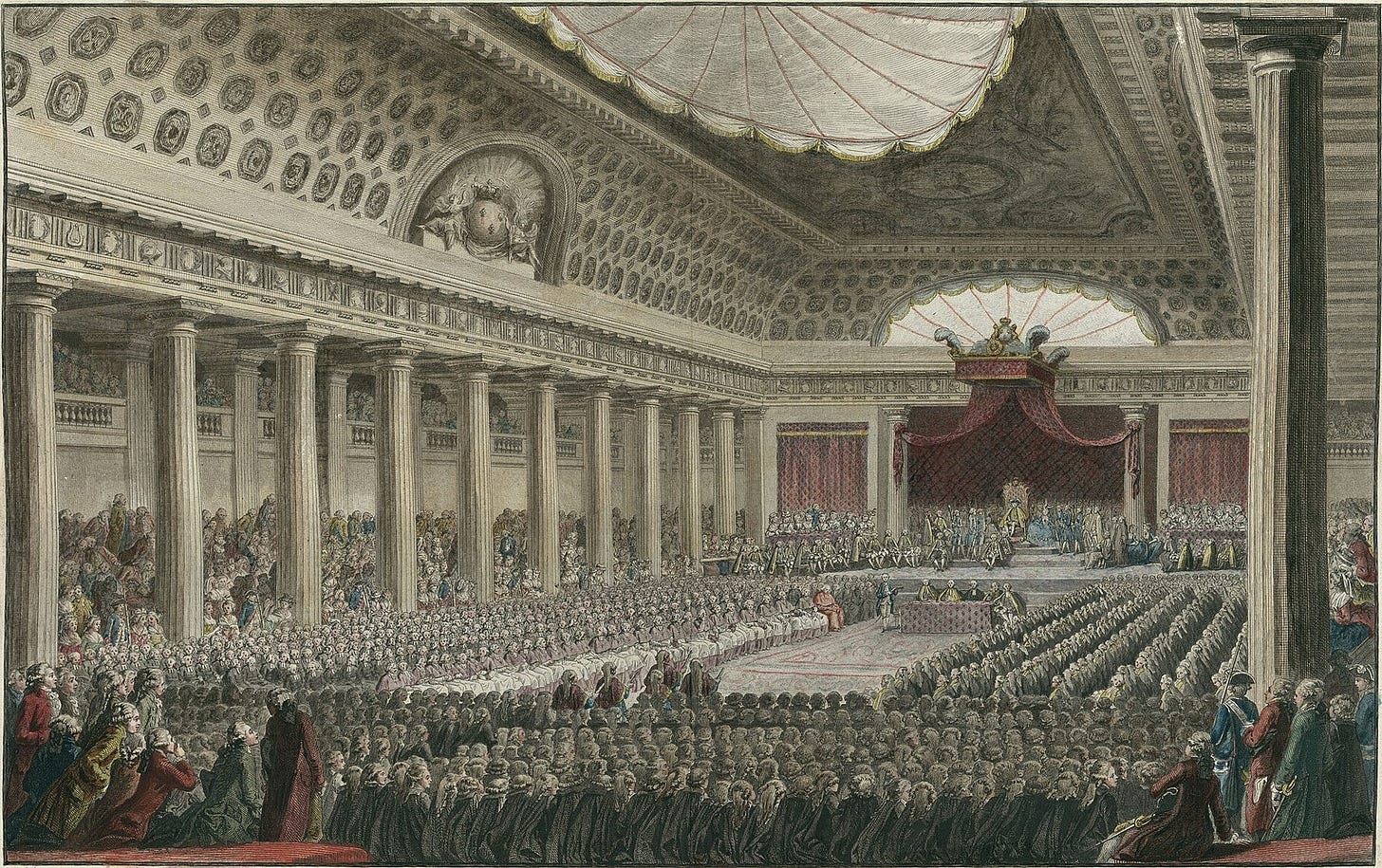

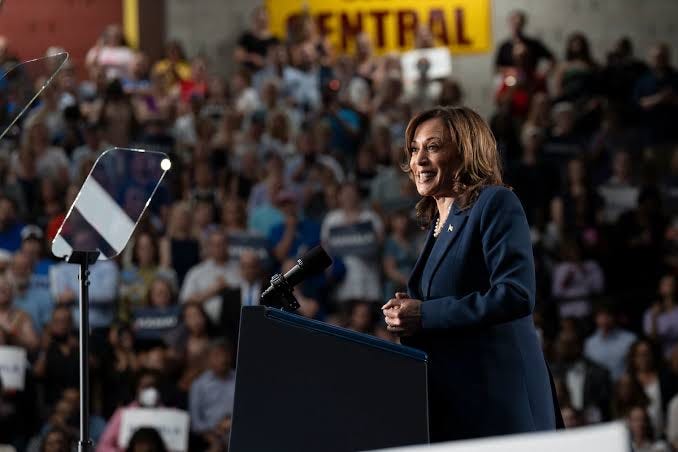
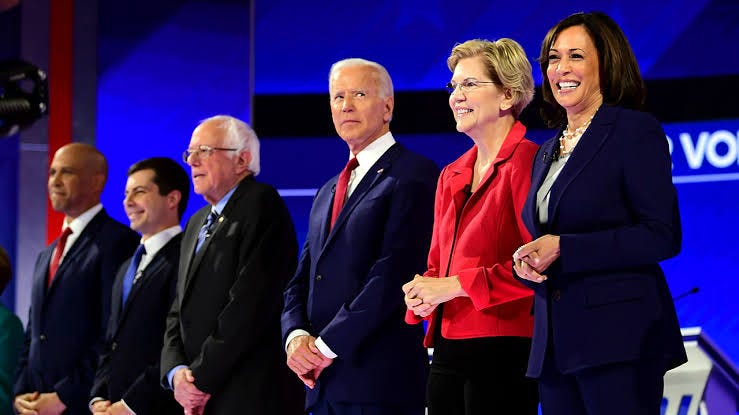

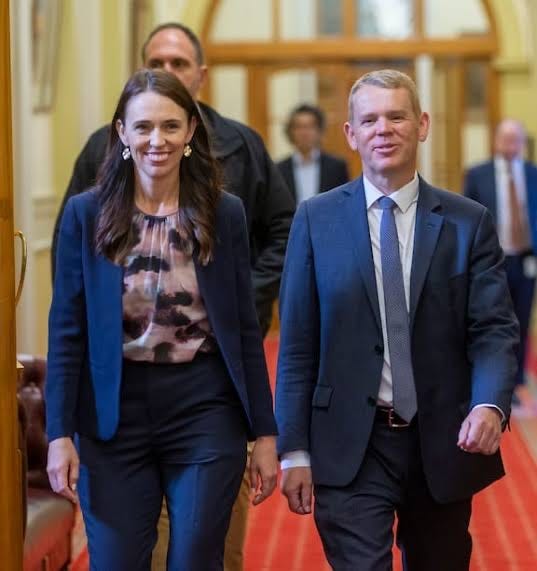


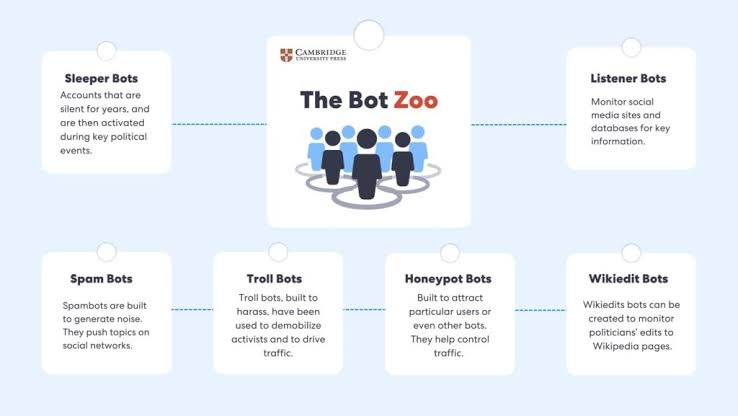
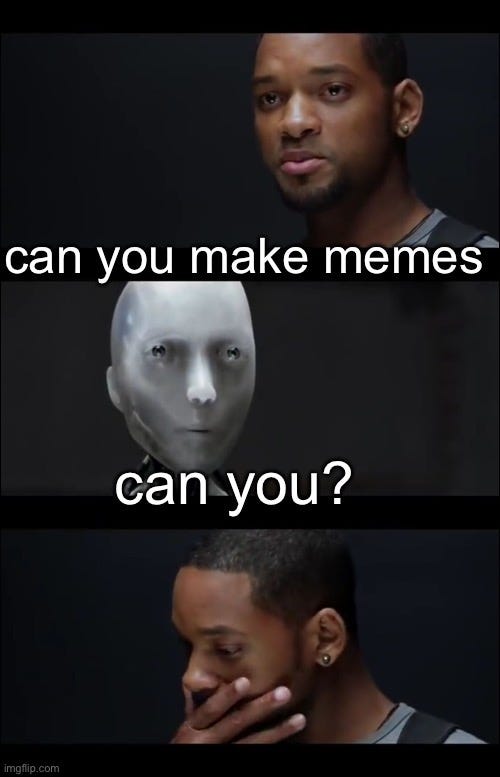

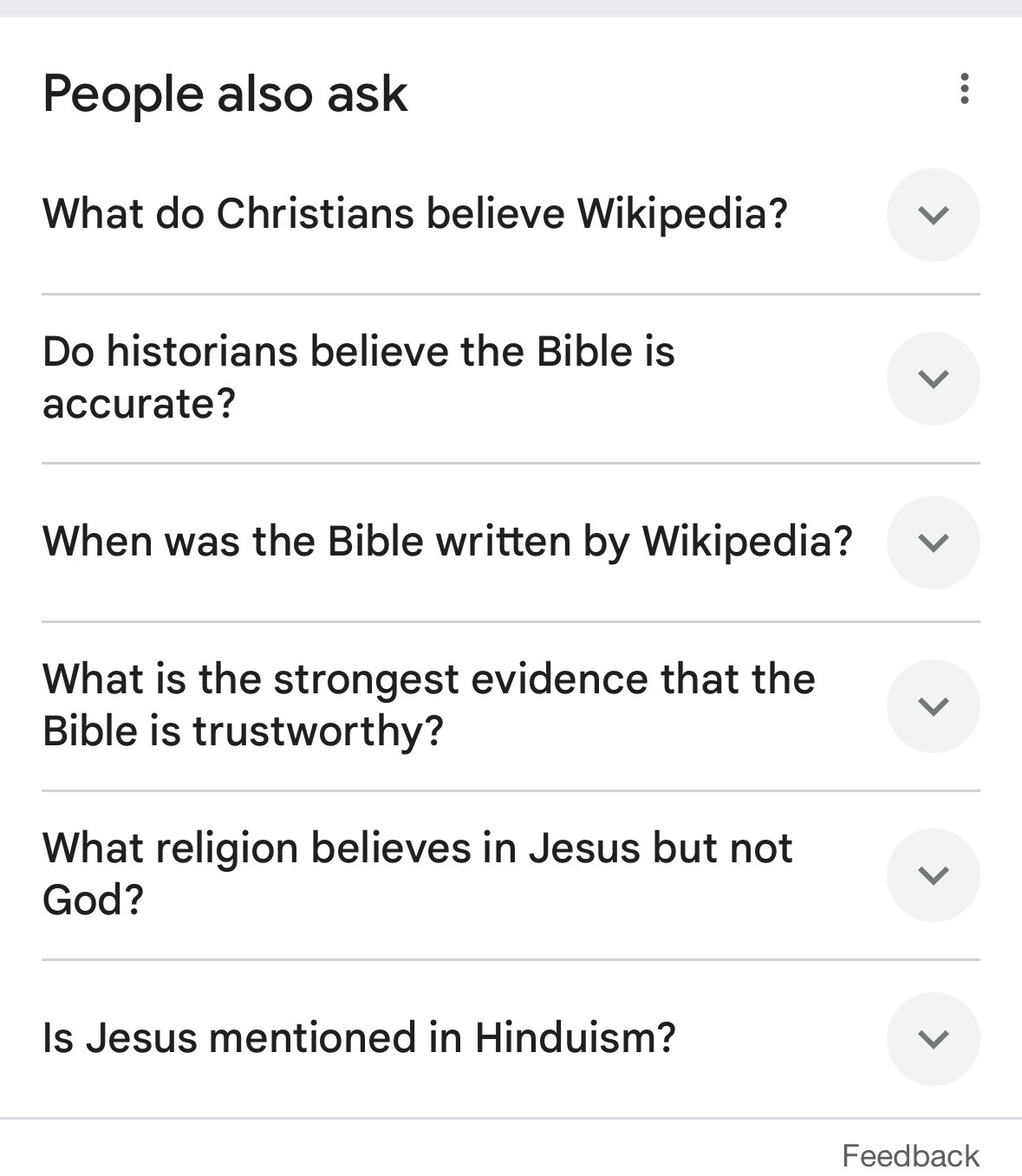


The best and most insightful analysis and deep thinking I have read. Yes, there are many, many, complex reasons for the creation of the environment Sapphi has so brilliantly framed out and described for us. At the very core of Sapphi’s proposition lives an indelible truth about Labour, which is 1000% correct in my mind. Labour are in fact the handbrake of change. They are getting in their own way trying to resuscitate a dead-on-arrival portfolio of ideas. This need for renewal is the self-reflection the party under Hipkins appears to be avoiding or obfuscating or trying to hide from or whatever it is. Bottom line: they are not listening and not learning. The poor response to the policy bonfire should have screamed a red alert to the Labour Party. Nothing less than systemic change was / is required for success. Removing GST from fruit and vegetables was a very desperate, forlorn, and sad act. In my view, it represented the last gasp for Labour in its present guise. As Sapphi eloquently points out, pandering to the centre isn’t going to work anymore. It won’t be enough. Securing our collective futures means some horses will need to be spooked, but therein lies the biggest opportunity too. And that is, just advocate for (with evidence and integrity) what is right.
The people will see that and they will follow, but the case for change has to be made and made brilliantly. It will not be easy. Stamping out ignorance is hard. Quick tip: bring your digital marketing A-game and combine it with an incredible ground game. Do the mahi. Excite us. Engage us. Give us some hope. We are right here. And the even bigger, better, news is…the current coalition is infused with moral decay. That decay is malignant. They are hanging by a thread. Luxon and his unprincipled coalition government have managed to become a national (and global) disgrace. They are far, far, far from being ‘on-track’. Alarmingly, their ethical failures and easily traded values are actively destroying New Zealand’s once cherished social norms. Their moral compass could not find ‘True North’ if it tried. Knock, knock, knock. Hello Labour, that’s opportunity at the front door….but…you will need to embrace your inner Bernie, whilst channeling the exceptional Elizabeth Ann Warren. Then, be prepared to stand on the hill of what is bloody right and fight for a better future. Neo-liberalism needs to be consigned to history. Kia Kaha.
Blimey! That's a lot to absorb and process. I'm exhausted. Your comment concerning voters being motivated by 'the vibe' seems to accurately sum up the trends we see. MMP has saddled NZ with the promise of greater representation when arguably it has ushered in exactly the opposite. The net result hasvseen policy and legislation hijacked by unrepresentative minorities in the form of ACT and NZF since 1996 and the country has lunched ever more to the right as a consequence. Regarding US options. There has never been a choice between the left and right in real terms because the electoral system is rigged to favour the status quo. The result of a more convincing second Trump victory where his share of the popular vote actually fell since 2016 is a clear indication that many voters simply gave up and stayed at home, recognizing that a choice between a bumbling octagenarian and his side kick or a raving sociopath was really no choice at all. This as history shows us always favours the right since they always turn out. Returning to local politics. Labour us a dead dog in my view, attempting to be all things to all people. Hipkins is an insincere fool and those on the real left will never trust a man who needs to find 'the vibe' of Aotearoa over CGT before he commits to any 'radical' (??????) tax changes. I haven't voted Labour now for the last two elections because they masquerade as a left party when in truth they are centre right and have been ever since the first Lange government.